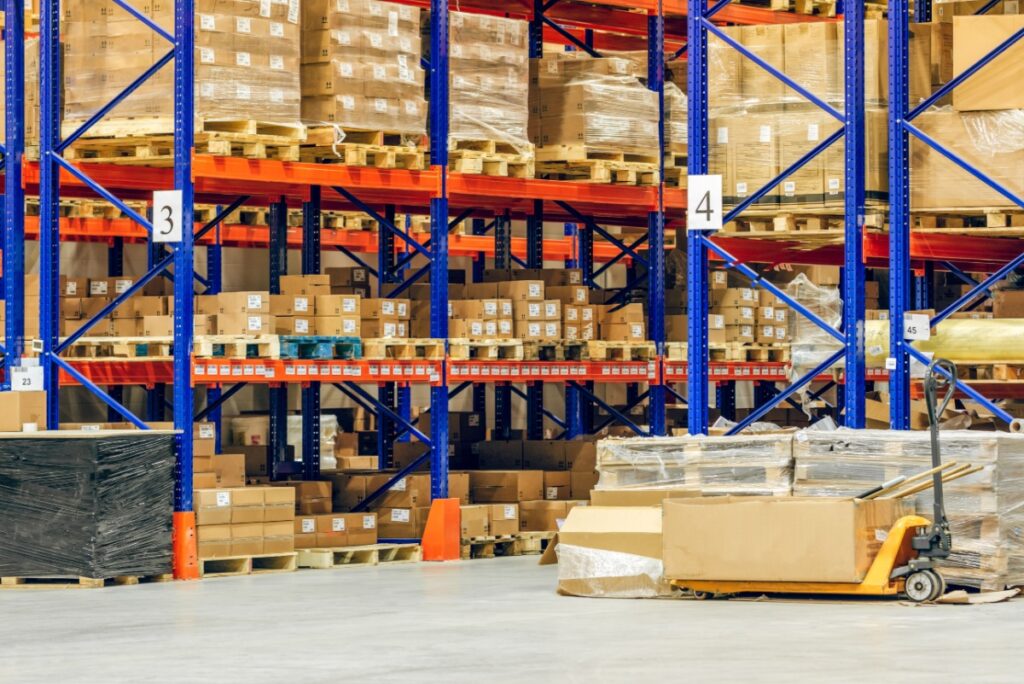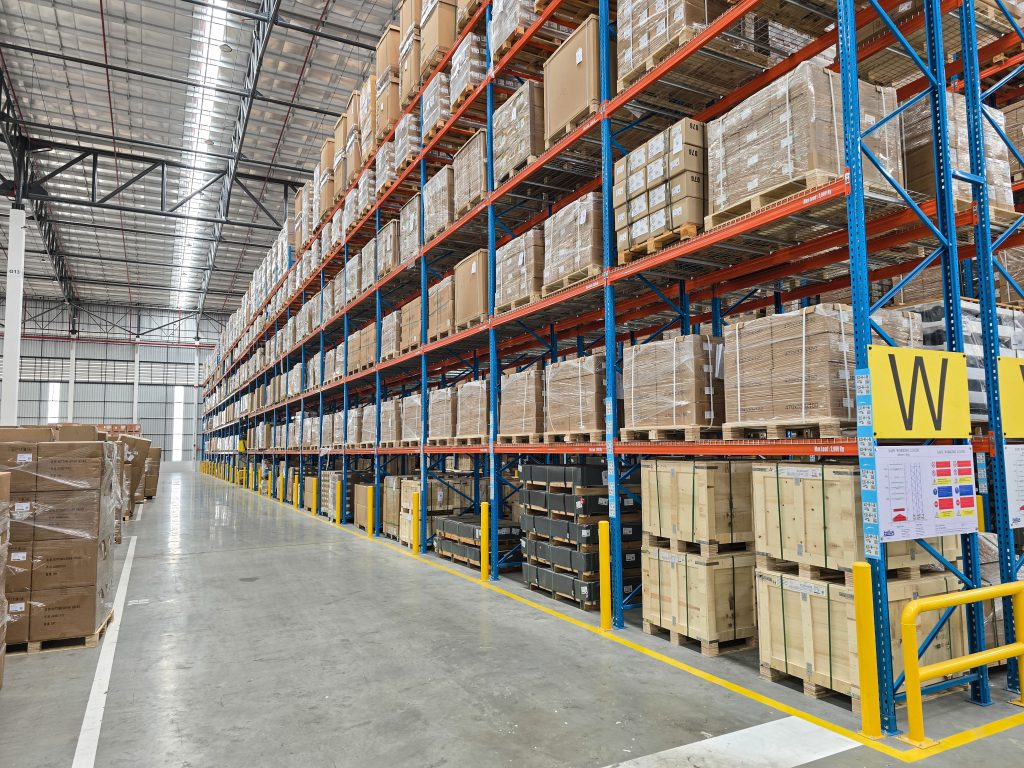Warehouse Selection: A Guide to Bonded and Non-Bonded Options
For importers, the biggest question of them all remains where to store goods before they go through the customs process. In this regard, they have to decide whether to choose a bonded warehouse or a non-bonded one, as each comes with a distinct set of advantages and limitations. Both are different types of logistics warehousing that serve as storage facilities for imported goods but operate according to different customs rules.
Which of the two you choose can have far-reaching consequences for your business, and therefore, it is essential to know how they function. This blog will explore the ins and outs of these warehousing solutions to help you make the right decision for your supply chain needs.
What is a Bonded Warehouse?
A bonded warehouse is a space specially reserved for storing customs goods without the need to pay import duties and taxes at the point of storage. It’s not that duties are eliminated altogether; they are deferred until the goods move ahead for domestic sales or are further exported. Bonded warehousing comes under the control of the Tax agencies and may be either publicly owned, where companies can request its storage and warehousing services, or privately owned, in which case they may only be used by the authorized warehousing company or holder.

What Is the Process of Storing Goods in a Bonded Warehouse?
When goods arrive at a bonded warehouse, they go through a structured process as given below.
- Firstly, bonded cargo is cleared through customs to ensure they adhere to all legal and regulatory requirements before being stored.
- Once approved, goods are stored under a duty-bonded stage until they are released for sale, export, or further reprocessing.
- Goods are entered into the inventory and monitored to comply with customs regulations.
Benefits of Bonded Warehousing
Deferred Duty
Tax duties are levied on the goods only when they leave the warehouse for sale and not when they enter the warehouse. This allows businesses to benefit from their continued stay without having to worry about paying taxes, which streamlines cash flow.
Extended Storage Periods
With bonded warehouses, there is no predetermined length of time for goods to stay in the warehouse. This effectively means that goods can be stored indefinitely or as long as it is required without having to be distributed immediately.
Facilitates International Trade
Companies engaged in global shipping and exports are relieved from paying import duties during the storage period before shipping them off for export.
Flexible Inventory Management
They make it possible for businesses to release their products when the market conditions are most ripe to maximize their competitive advantage.
What is a Non-Bonded Warehouse?
A non-bonded warehouse works in the opposite manner to their bonded counterparts. Whereas businesses were exempt from sales taxes while stored in a bonded warehouse, businesses are subject to immediate customs duties and taxes as soon as goods arrive. They function as tax-free areas, which means that there are greater opportunities to import goods from a wide range of countries.
Benefits of a Non-bonded Warehouse
As a storage facility, it offers the following benefits,
- These warehouses are not placed under customs scrutiny and hence can be distributed to their end users like customers or retailers relatively quickly compared to bonded storage.
- A non-bonded warehouse is authorized to export directly from the premises, which simplifies the logistics process, particularly for businesses that sell in the local market.
- There are no trade policy measures applicable on non-bonded warehouses, and custom duties are suspended, too.
- A non-bonded warehouse is more flexible in terms of customs regulations, hence allowing goods to be moved or stored without any restrictions.

Stored goods at a Non-Bonded Facility
When Should You Use a Bonded Warehouse?
Bonded warehousing is a recommended choice in the given scenarios.
- When companies import goods in bulk quantities and don’t want to bear the financial burden of excise duties.
- A bonded facility is ideal when the imported goods have a low to medium turnover, as in the case of SMEs that are in their initial stages of growth and primarily lean towards exports. Such companies intend to re-export goods and thus postpone paying import duties when goods remain in storage.
- It is suitable for companies seeking a window of time to repackage or assemble shipments before sending them away. This may also involve securing time for quality inspections to avoid issues later on.
You can partner with a third-party logistics provider (3PL) instead of contracting a bonded warehouse. Custom fees are deferred in both cases, but the 3PL option can provide comprehensive logistics support, including transloading and drayage services.
When Should You Use a Non-Bonded Warehouse?
A non-bonded warehousing service turns out to be the better option when the following conditions exist.
- Businesses that expect faster turnaround times and cannot afford delays in deliveries, like retailers or wholesalers.
- Importers are concerned with handling and classifying goods or transferring them to different pallets. They can undertake these activities while being immune to VAT or other applicable taxes.
Bonded vs. Non-Bonded Warehouses: Main Distinctions
| Bonded warehouses | Non-bonded warehouses |
| Exempted from tax until goods leave | Immediately enforced once goods arrive |
| Long-term storage and, at times, unlimited | Temporary warehousing storage |
| Customs Supervision required | Not mandatory |
| Best for businesses seeking delayed payments | Best for businesses looking to distribute |
| Processing and repackaging are allowed | Not allowed |
| Ideal for importers, exporters, and international business | Suitable for Retailers, distributors, and wholesalers |
Frequently Asked Questions (FAQs)
1. What is the biggest advantage of using a bonded warehouse?
A bonded warehouse offers the advantage of deferred duty payments, allowing businesses to store goods without any upfront costs.
2. How Long Can Goods Stay In A Bonded Warehouse?
Although exact storage periods vary according to local rules, in most cases, they can remain for an unspecified period under custom regulation.
3. Can I Process Or Assemble Products In A Bonded Warehouse?
Yes, certain bonded warehouse companies offer facilities to assemble and repackage products and even carry out light manufacturing processes before goods set out for sale or export.
4. Do All Businesses Qualify For Bonded Warehouses?
Certain customs regulations apply to importers, who also have to secure approval to ensure they can store duty-free.
5. Is A Non-Bonded Warehouse Better For Small Businesses?
Yes, if a business’s operations are limited to the domestic market and rely on a quick inventory turnover, then a bonded warehouse would be a better option.
Conclusion
The primary difference between the two warehouses lies in the domain of tax payment. In bonded warehouses, no taxes are levied until goods depart from the warehouse, while taxes have to be paid upfront in the case of non-bonded warehouses. The answer to the question as to which will work best for you depends on your specific import needs and how long you plan to stock your goods.
Take time to weigh the pros and cons of each warehouse before settling for one to ensure they yield dividends for your business. Contact us to learn more about our top-tier 3PL solutions, including how our value-added warehousing services can optimize your supply chains for greater efficiency and, hence, greater profits.